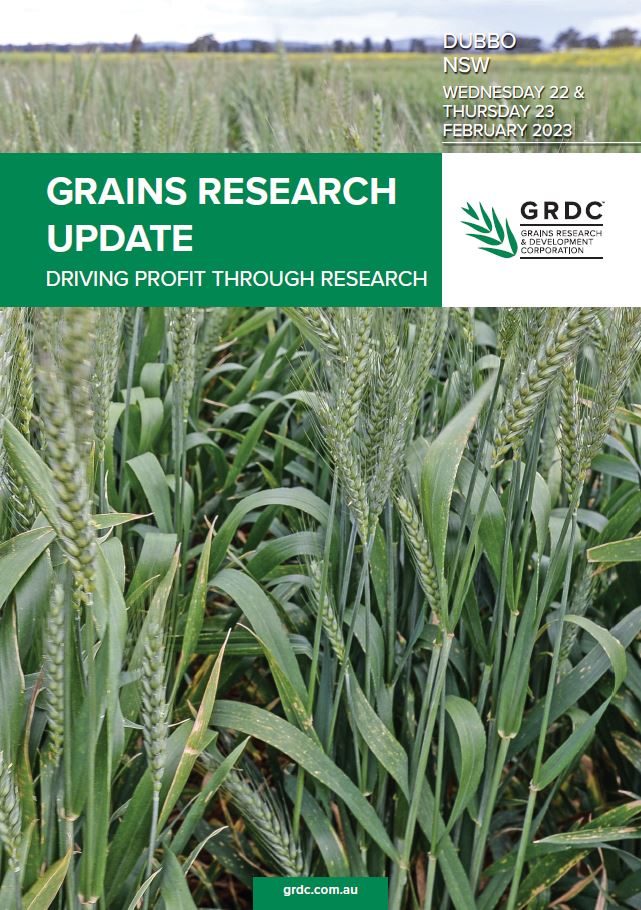GRDC Grains Research Update Dubbo 2023
GRDC Grains Research Update Dubbo 2023
This page contains update papers presented at the GRDC Grains Research Update Dubbo 2023.
Browse all update papers below or click Download PDF.
Use the media tab to view presentation materials from the event such as power points, images or videos and other media.

No results found. Try searching again.
